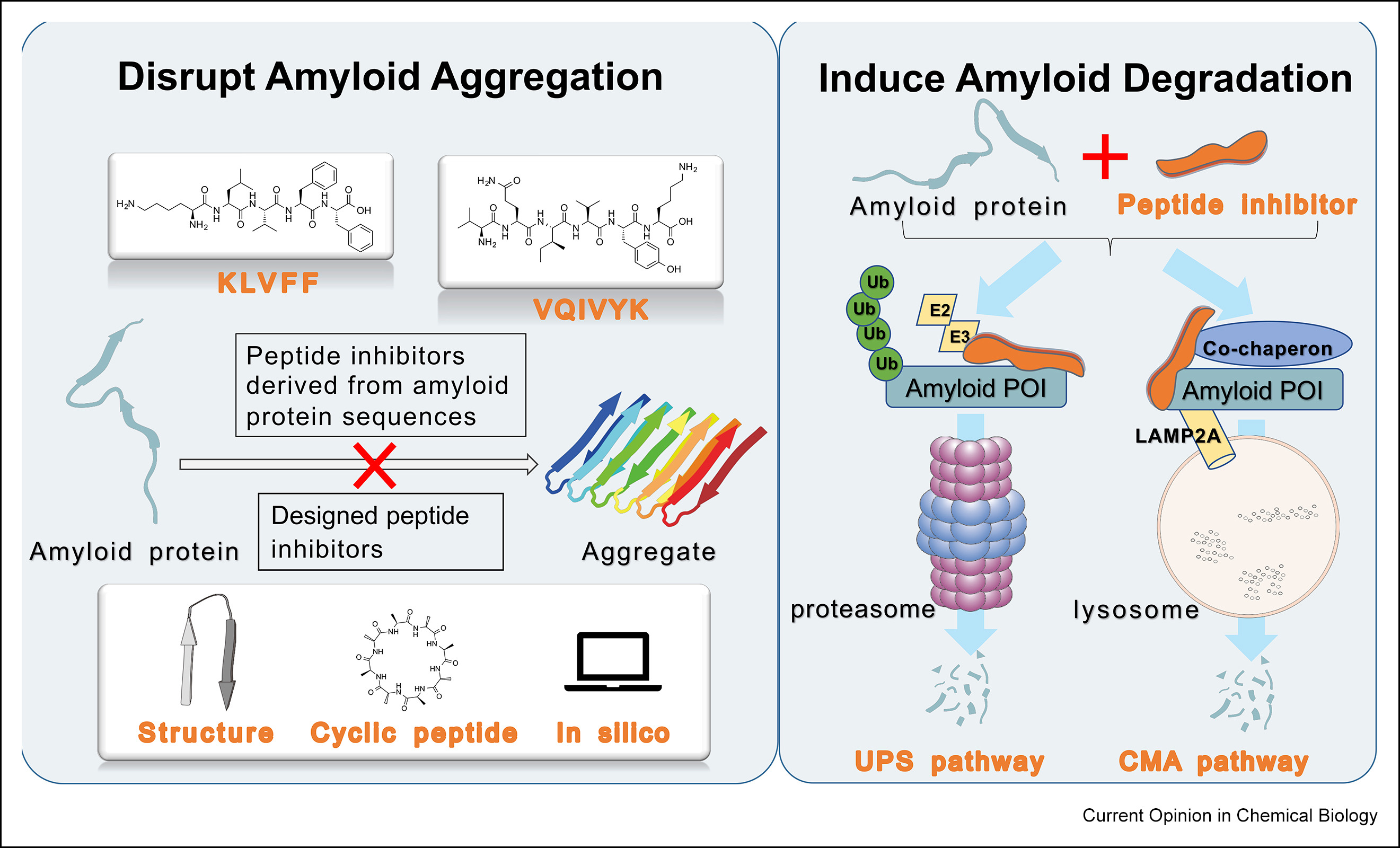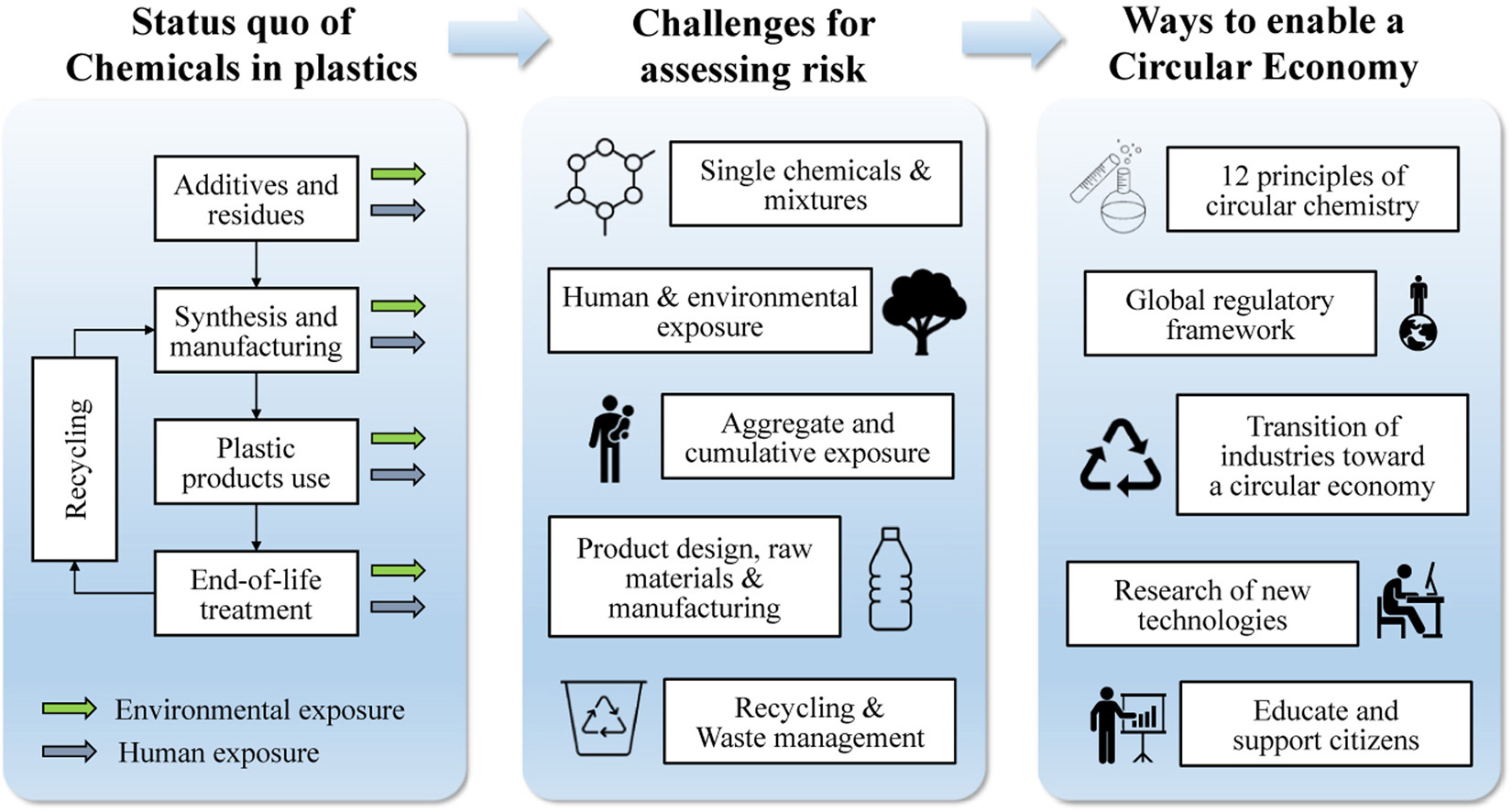Amyloid proteins can aggregate into insoluble fibrils and form amyloid deposits in the human brain, which is the hallmark of many neurodegenerative diseases. Promising strategies toward pathological amyloid proteins and deposition include investigating inhibitors that can disrupt amyloid aggregation or induce misfolding protein degradation. In this review, recent progress of peptide-based inhibitors, including amyloid sequence–derived inhibitors, designed peptides, and peptide mimics, is highlighted.
Enabling a circular economy for plastics in Europe and beyond is an ambitious goal. To reach a fully closed loop, numerous challenges and knowledge gaps need to be overcome. This review provides a list of more than 6000 chemicals reported to be found in plastics and an overview of the challenges and gaps in assessing their impacts on the environment and human health along the life cycle of plastic products. We further identified 1518 plastic-related chemicals of concern, which should be prioritized for substitution by safer alternatives.
Monitoring the thermal comfort of building occupants is crucial for ensuring sustainable and efficient energy consumption in residential buildings. Existing studies have addressed the monitoring of thermal comfort through questionnaires and activities involving occupants. However, few studies have considered disabled people in the monitoring of thermal comfort, despite the potential for impairments to present thermal requirements that are significantly different from those of an occupant without a disability.
World Food Day is organized every year on October 16 to bring awareness to how our changing planet affects food production and distribution. In support of this year's theme "Our actions are our future- Better production, better nutrition, a better environment and a better life", Elsevier presents a collection of over 70 pieces of curated and freely available books and journal content.







